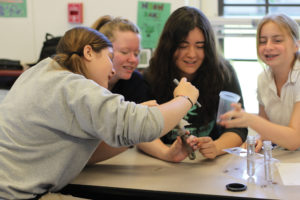 Always a precocious child, at 10 months of age, when most children are babbling, she already was toddling around the home, calling out to her older brother in clear and complete sentences.
Always a precocious child, at 10 months of age, when most children are babbling, she already was toddling around the home, calling out to her older brother in clear and complete sentences.
Her capacity to remember songs and poetry was unfathomable, surprising her older siblings and delighting her parents.
In school, she consistently performed at the top of her class. She was the top candidate out of 1,100 students selected for a very prestigious secondary school and top student in her graduate programs.
People now call her doctor. I call her aunt. My aunt was extremely gifted. Both her analytical skills and her artistic sensibilities are quite enviable. She benefited from a school environment that prized learning and self-growth.
Gifted and talented children need an environment that can foster their own genius because their high intelligence means they can get in trouble more. Once, when my aunt was 2 years and 6 months old, a preschool teacher reprimanded her. She walked out of the preschool room, and navigated the labyrinthine path through the large building to the exit.
Once outside, she proceeded to another building on the college campus, many feet away, entered, deciphered the circuitous path where her mom was and, with self-righteous conviction, made a passionate speech detailing the injustice she had suffered.
This cute story is about a genius battling wits with adults and their architectural mazes. There are real consequences to gifted children, however, if they are not provided the support and educational opportunities. Gifted and talented children need specialized instruction in order to reach their full potential.
The idea gifted children already have a reserve of talent allowing them to succeed is dismissive to these children’s needs. It also runs counter to evidence pointing to serious problems that can result without targeted intervention, such as dropping out of school, especially for students living in poverty.
Design Of A Gifted Program
When it comes to the design of a gifted program, a flexible model, allowing for differences in a child’s learning style, is crucial. Fortunately, none of these are mutually exclusive. The only requirement is that the values of high expectations emphasize academic excellence, and established challenging standards must guide the gifted program (Buchanan, Fox and Martin, 2008).
The Content Mastery Model focuses on knowledge and skill acquisition. Students go through a predetermined curriculum at their pace. Any modifications made are to pacing rather than the curriculum itself.
The Process/Product Model is based on the premise students are naturally inquisitive. They are natural scientists, and allowing students to uncover the natural laws of the universe themselves is preferable to teaching them the same laws. The reason is self-directed discovery can help the students experience firsthand and internalize content.
A third model is the Epistemological Model or Concept-based Model. Here, students focus on the question, why instead of what. Critical thinking is the focus here. The model relies on the idea deeper thinking requires questioning the knowledge we acquire, not learning more information. Quality is better than quantity.
Self Development Academy is taking a composite view. We believe each model has relevance and merit. For that reason, we already offer a content mastery model. In fact, each grade is already paced faster than the average Arizona school.
Project-based Enrichment Program
However, this fall, we will be introducing a yearlong project-based enrichment program for students we select and identify as gifted. This project will draw on a diverse array of subject matters and a single project presented at the end of the school year will demonstrate each gifted student’s proficiency in Science, Technology, Engineering, Arts and Mathematics (STEAM).
Further, we are incorporating the epistemological model into our gifted program, a philosophy for children. We will emphasize deep analysis and critical thinking in critiquing works of art and literature. We will study formal logic and argumentation practices.
All children have differing abilities, but this does not mean children with excellent abilities need less. Only a small fraction of charter schools provide gifted programs (Buchanan, 2008). We will commit to the needs of gifted children at Self Development Academy because gifted children are essential components of our future. They are keys to solving the greatest of crises, and they are the poets by which a generation comes to understand itself.
For more information about the Enrichment Program at Self Development Academy, please call (480) 641-2640.

